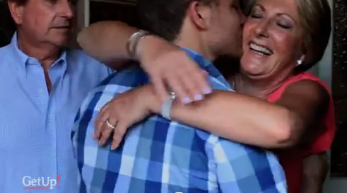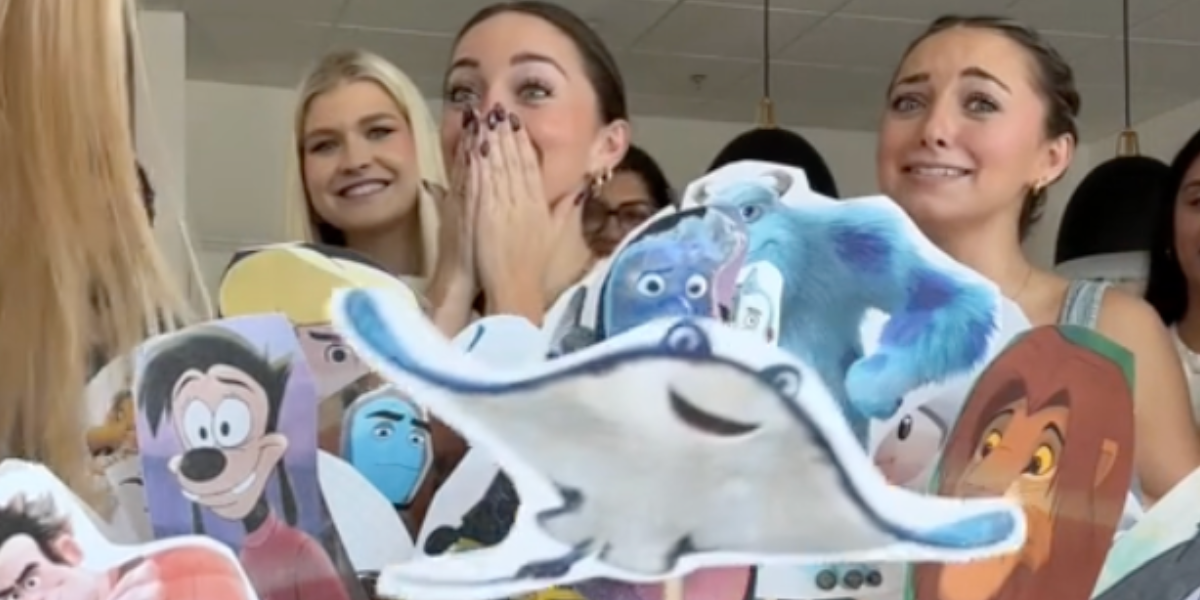Australia’s voting population isn’t as divided on the issue of marriage equality as America’s; in fact, almost two-thirds of voters support it. But it’s also not seen as an issue of high national priority, and Australia’s Prime Minister, Julia Gillard, still claims that marriage equality would constitute an unwelcome change to the institution of marriage.
Into this context comes a new ad campaign from GetUp! Australia, an “independent movement for a progressive Australia:”
Released on Thursday, the video is already rapidly making the rounds of the blogosphere, with Pam’s House Blend declaring it’s “to the point, universal, and says it all,” and the Advocate calling it “possibly the most beautiful ad for marriage equality we’ve seen.” What’s so compelling about this ad that sets it apart from the efforts of a dozen other organization to win more mainstream support for marriage equality?
“The Commitment Campaign” from Third Way, another recent development on the marriage equality PR scene, is based on the premise that straight voters will be more likely to support marriage for gay couples if they’re reminded that same-sex couples care just as much about commitment as straight ones. It’s a campaign meant to work against the apparent belief that gay couples want marriage for different reasons than straight ones. The Advocate sees GetUp!’s campaign as fitting within Third Way’s paradigm, saying that “it’s a message of commitment like this one — and not about benefits or rights — that will be most effective with voters.”
What does this campaign tell us about commitment, though? Well, what actually happens? We watch a couple meet, get to know each other, and get through the milestones of a serious relationships — both the good ones, like successfully meeting the parents, and the heartrending ones, like watching the person you love have a complete breakdown in the bathroom of your apartment and having to stand helplessly by while they drown in grief. We watch everyday occurrences, days at the beach and fights in the car, compressed into two minutes with some truly excellent filmmaking. Most notably, we’re kept from the realization that we’re watching a gay couple until the last few seconds of the video; for the first two minutes or so, we could be watching anyone.
Does the reveal at the end tell us something about commitment, or convince us that gay couples want the same things from marriage that straight ones do? Is it really a message about marriage? The last words you see on the screen are “It’s time.” It’s time to make marriage equality a priority, yes, but isn’t the real idea that it’s time to realize that you really can’t differentiate between a gay couple’s feelings for each other and a straight one without pulling the camera back? The viewer watches the whole spot as if they themselves are part of this relationship, as if it’s all happening to them. Aren’t they really being asked to realize that they don’t feel disgust or disapproval at what they’re experiencing vicariously, but joy and genuine tenderness? Isn’t it time not just to make marriage equality a priority, and not just to recognize that gay couples also want “love and commitment,” but that every moment up to and including putting a ring on a finger is just as precious and scary and real as a straight relationship?
The campaign for marriage equality in Maine also has a series of new ad spots out, which are also touted as promoting a vision of shared values and commitment. The message that flashes on the screen at the end says “Love. Commitment. Marriage.” But it also features a middle-aged dad talking about the struggle to accept his lesbian daughter, and his eventual understanding that “she is the same person [I] loved yesterday.” Maybe that’s what we’re really talking about here; not separate but equal, not even un-separate but equal. More than equal, we are the same as the people who are suspicious of or mistrustful of us. Is that really what “it’s time” for people to understand?







